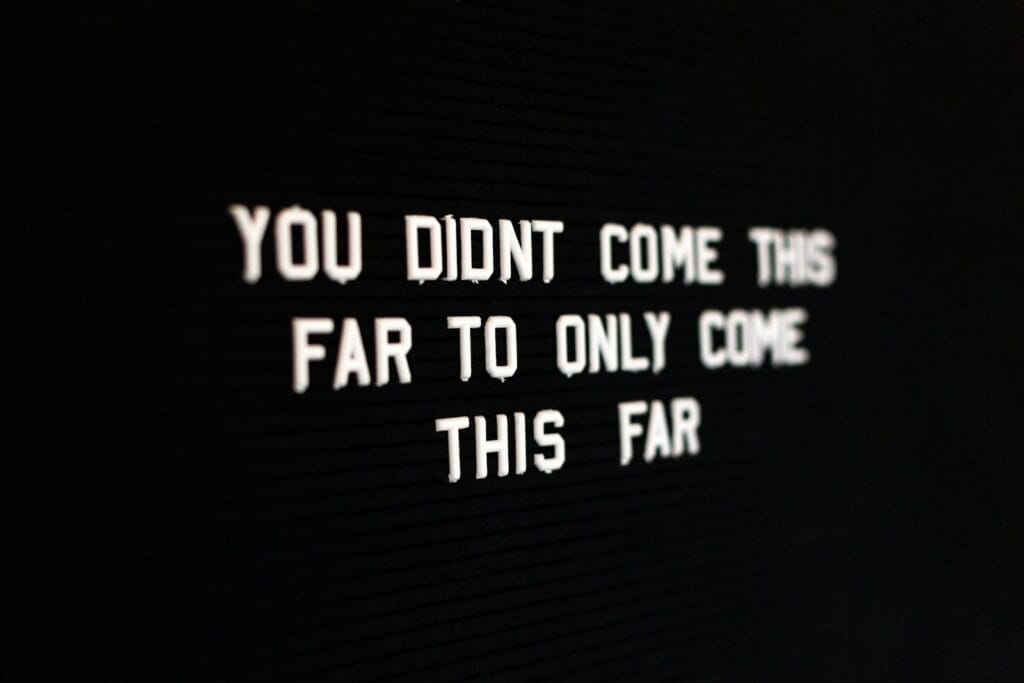How to Choose A Career Path That’s Right for you in 2025


How do most people choose a career?
Well...they don't. They stumble into a job after college, take whatever they can get, then follow one of the few paths available from that random job.
No wonder most people are frustrated in their careers.
But there actually IS a way to narrow down your potential interests to choose a career that you will love.
Ramit Sethi, our founder and career-path guru, has put together a Dream Job system that helps you explore ALL the careers you’re interested in, test each to see if you’d really enjoy doing them, and move on to other jobs if they’re not a good fit.
Here are some of our best tips on finding a career you love - even if you have no idea what you want to do.

1. Perform a self-assessment
A good evaluation of your personality defines the kind of job you would fit into. And we're not talking about taking a random career personality test and doing whatever it tells you to do - those tests are usually unrealistic, and can't paint a clear picture of what really drives you.
Instead, ask yourself the following questions and let your responses guide your career search.
What motivates you?
The first step in assessing your personality is finding out what motivates you. If you can't answer that question on your own, turn to friends, family, and colleagues to understand your driving force. When do they recognize your eyes lighting up? Maybe it's after you've helped someone, or when you've solved a difficult problem. Understanding what gives you energy can help point you in the right career direction.
Evaluate your skills
Some jobs tap into soft skills, like communication and personality, while others demand a particular academic skill set. For instance, technical jobs automatically require you to possess an analytical mindset/background. You cannot apply for a scientific research position when your only training is in art history. If you do want to make a career switch, that's ok, but understand that you'll likely need additional training.
Understand your weaknesses and dislikes
Have some self-awareness and get clear on your major weaknesses and dislikes. You may realize that you have poor delegation skills or that you hate team collaboration. You'll need to recognize where you have weaknesses or outright dislikes. For example, if you don't like talking to people, you probably won't want to consider a career in customer service.
2. Make a list of potential careers to explore
One of the most daunting parts of choosing a career is picking just ONE job...that you’re supposed to do for the rest of your life.
- “What if I decide that I hate doing X? Can I ever do something else?”
- “What if I want to change careers in a few years? What do I do then?”
- “What if I like to do LOTS of things and can’t decide where to focus?”
Just start by listing ALL the careers and job titles you might be interested in.
Anything you want to explore, just write it down.
- Think copywriting sounds fun? Add it to your list.
- You can imagine yourself as a marketing director? List it out.
- Know someone that does inside sales and what they do sound cool? Put it on the page.
- Have you toyed with the idea of being a baker? Nothing is too left field. Write it down.
Ramit calls this the Cloud Technique because your options are as open as the sky.
This lets you say “Yes” to EVERYTHING you’re curious about instead of constantly saying “No, I can’t do that because…”
Where should your ideas come from? Here are a few career brainstorming tips:
- List any careers or job titles that caught your attention in the past.
- Go to LinkedIn or another job listing site and read job descriptions. If anything catches your eye or seems like it’d be fun to do, add that to your list of potential ideas.
- Think about the skills you already have or the ones you’d like to develop. Then, search for jobs that involve those skills. For example, do you really like design and being creative? See what jobs require those skills by searching online. Put these options on your list of potential careers as well.
- Think about people whose jobs you envy. Have you always been jealous of your aunt because she is a tour manager with your favorite band? Write that down.
3. Research your top career choices
Once you’ve tentatively selected a few job titles, it’s time to do some deep research. This is where you go from “Hmm…sounds interesting” to truly understanding what the job is about.
Remember: You don’t have to become 100% knowledgeable about these roles… just yet. You just want to learn as much as you need to see if a job is right for you.
Let’s use the job title of “engineer” as an example of what you’ll want to look for.
The first thing, you’ll want to do is get a bird’s eye view of the job:
- What do engineers actually do?
- What are the different types of engineers out there (petroleum, electrical, civil…)?
- What kinds of companies do they work for?
You can find this info with a quick search through Wikipedia or Googling “introduction to [INSERT JOB].”
As you tackle those broad and sweeping questions, you may start to eliminate some options you originally listed. And that’s okay. In fact, that’s expected. Just because something sounds interesting in theory, doesn’t always mean it will be.
You actually want to narrow things down at this stage. If at any point, you run out of job titles on your list, simply go back to step three (with your new insights on what you want from a job) and start again.
The world wants you to be vanilla...
…but you don’t have to take the same path as everyone else. How would it look if you designed a Rich Life on your own terms? Take our quiz and find out:
Once you have a basic high-level understanding of the positions, you can dive deeper into the nitty-gritty details:
- What does this job pay?
- What type of educational experience is required?
- What’s the trajectory?
- What does the job look like on a day-to-day basis?
- How many hours per week do they work?
- Is there travel involved?
- What makes a great engineer vs. simply a good one? Is it a strategic vision? Creative ideas? Quantitative skills?
- What blogs/books/websites do they regularly read in order to stay “in the know?”
The whole time you’re going through this process, ask yourself “Could I see myself doing this?” and “Is this something that still interests me?”
This process helps you discover what it is you truly enjoy. Once you’ve narrowed your list down again, you’re ready to hear from people who actually work in these roles. That’s how you guarantee this is the right career choice.
4. Conduct informational interviews
An informational interview is an informal talk you have with a subject working in your desired profession. It is the last step you take when deciding your career path.
You may have heard about informational interviews before, but few people actually take this critical step. Two things you need to know:
- An informational interview is an opportunity to meet someone you’re curious about and learn from them. So if you’re curious about what a product manager or engineer really does and want inside tips about the job, this is how you find that out.
- People want to meet smart people who are curious about the same things. That means you, if you send a great email, have insightful questions, and are interesting.
Here's how to set up an informational interview:
Book their time
First, identify people with who you'd like to speak. Then, reach out with a friendly email asking if they'd be willing to meet with you. Here's a sample email script you can modify and use.
Subject: Hello, Allen!
I hope all is well and that this email finds you in good spirits. I'm thinking of catching up on a few things regarding my career choice.
I read about quality control in large pharmaceutical companies and am passionate about it, but there is not much information on the ground experience. The job will have me on the production line, and I'm interested to know what that looks like and what should I be ready for? I know you are resourceful, given your over a decade-long career in the same line, which I admire greatly!
Would you mind virtually connecting with me for a brief period so I can get your ideas on quality control as a line engineer?
Please let me know a good time to connect.
Kind Regards,
Tommy
Keep it short. Go straight to the point and give a compelling reason.
Prepare talking points
You don't want to show up to an informational interview with nothing to say. Prepare your questions ahead of time, and do a little research on the person you'll be interviewing, too. This will help you connect with them while getting the most out of the interview.
Speak about your challenges truthfully
An informational interview is a perfect place for you to share your reservations about the job you're learning about. After all, you haven't chosen it as a career yet. It's better to find out that it's not a good fit for you now than in the future once you've started in that line of work.
Be a good listener
Be attentive and take notes during your informational interview. Ask questions during the conversation. If you don't know what to ask, you can always ask an open-ended question like, "Is there more you can tell me about XYZ?"
Send a thank-you note
Sending a thank-you note is mission critical after an informational interview. Even if you don't want to go into that line of work after the interview, you never want to burn a professional bridge by not following up. Drop the person you spoke with an email and let them know how their advice is helping you achieve your goals.
While a dream job falling into your lap is rare, you can systematically find one. We see many students struggle to get a job of their choice, and we step in to help. This is not to say that it is always easy. But it is possible.
Let us help set you up for success by guiding you on a career path you love. Let us help you in your quest to find your dream job.
FAQs About How to Choose a Career
Why are career choices important?
A career is a long-term endeavor, and choosing the right one can make all the difference in your overall well-being. The earning potential of your chosen occupation is a major consideration for most when deciding on a suitable career. Choosing the right profession means that you will be able to have economic security — a factor that plays a key role in our overall well-being.
What factors influence a career choice?
Based on the literature review, there are a number of factors that affect a person's career choices. The three factors include environment, opportunity, and personality. Each of these factors plays a role in how students make their choices.
How does interest affect career choice?
Your career interests are a key factor in determining what career you will pursue. When you align your career with your interests, you increase job satisfaction and gain skills that help you perform better in your work environment.